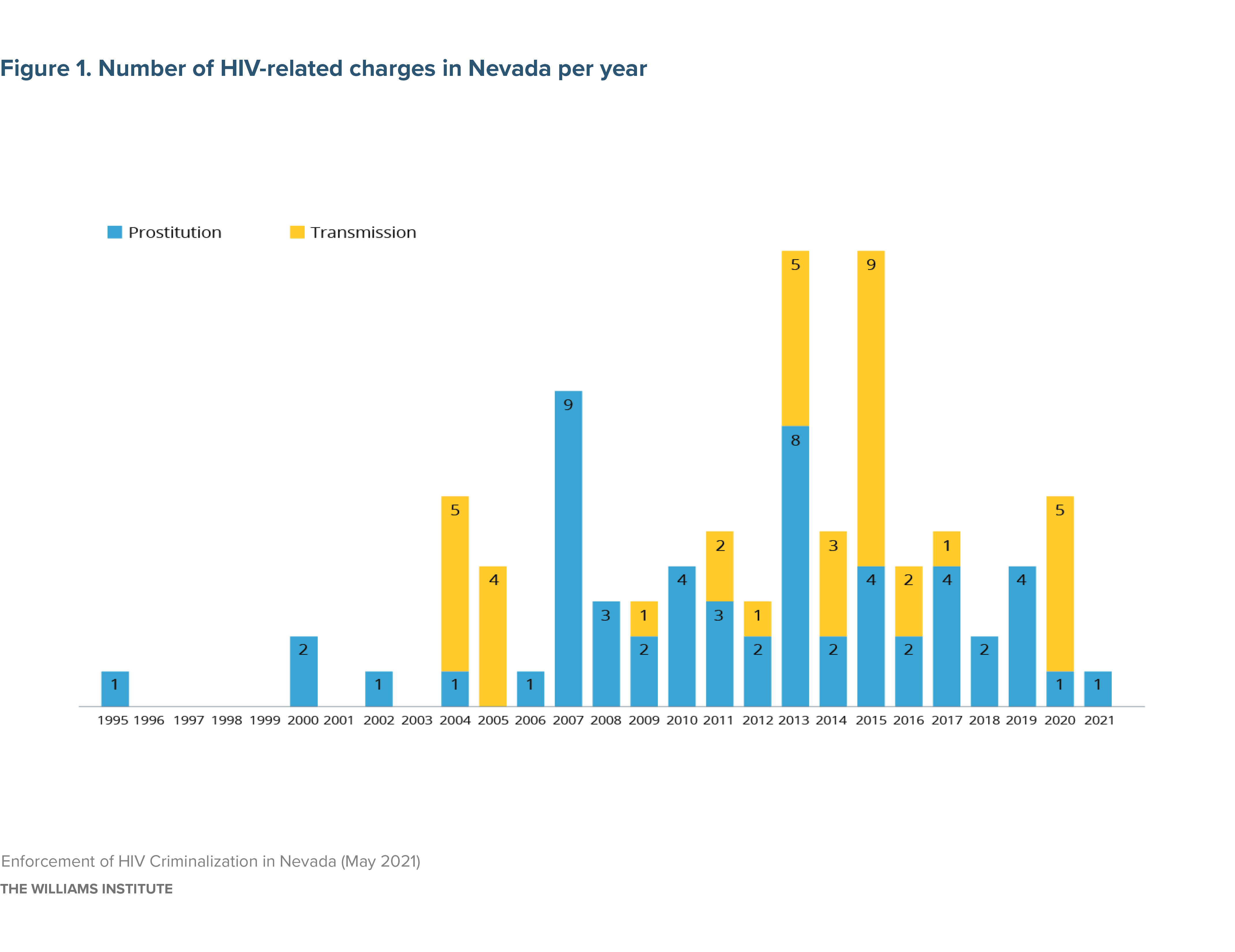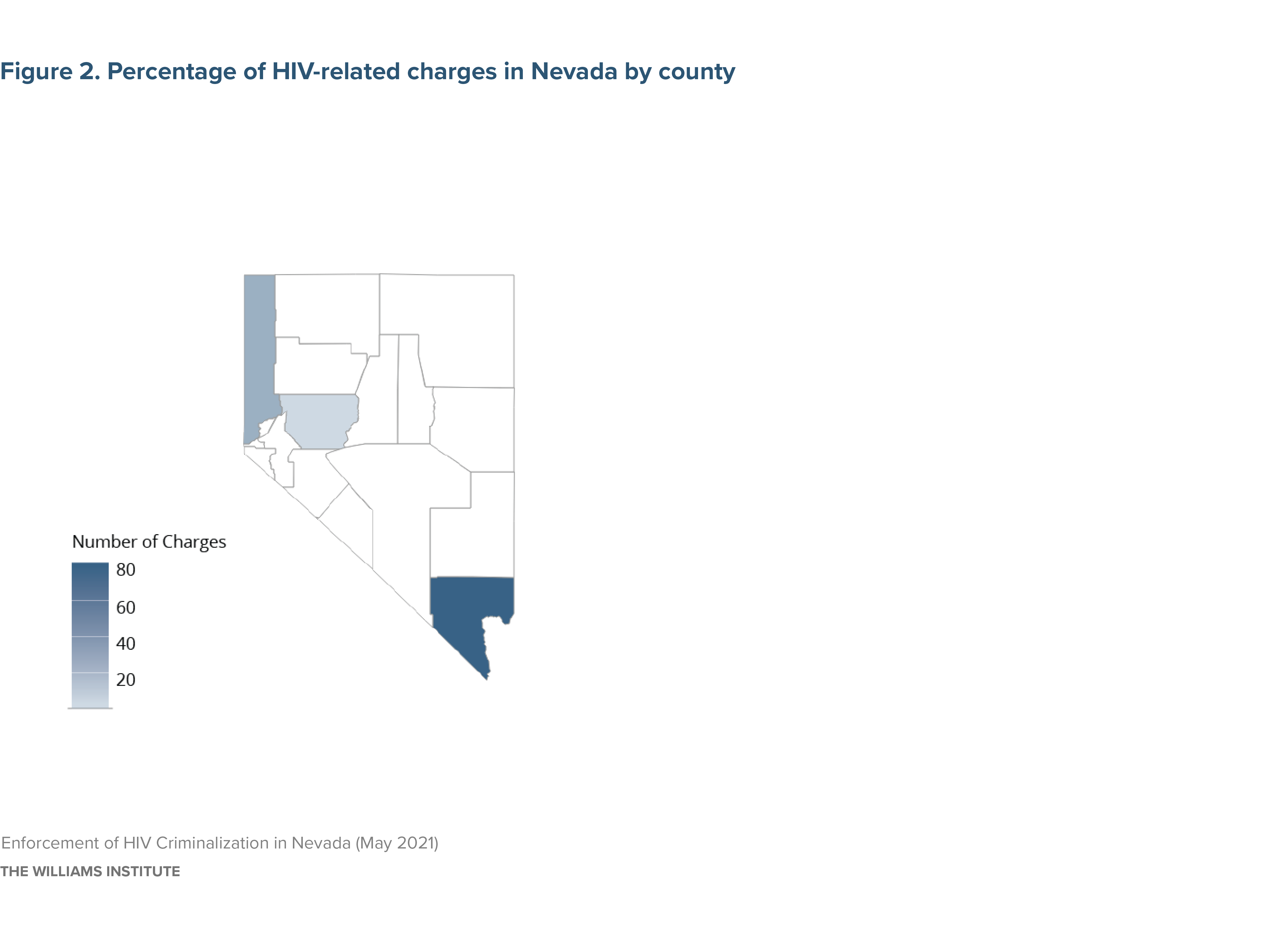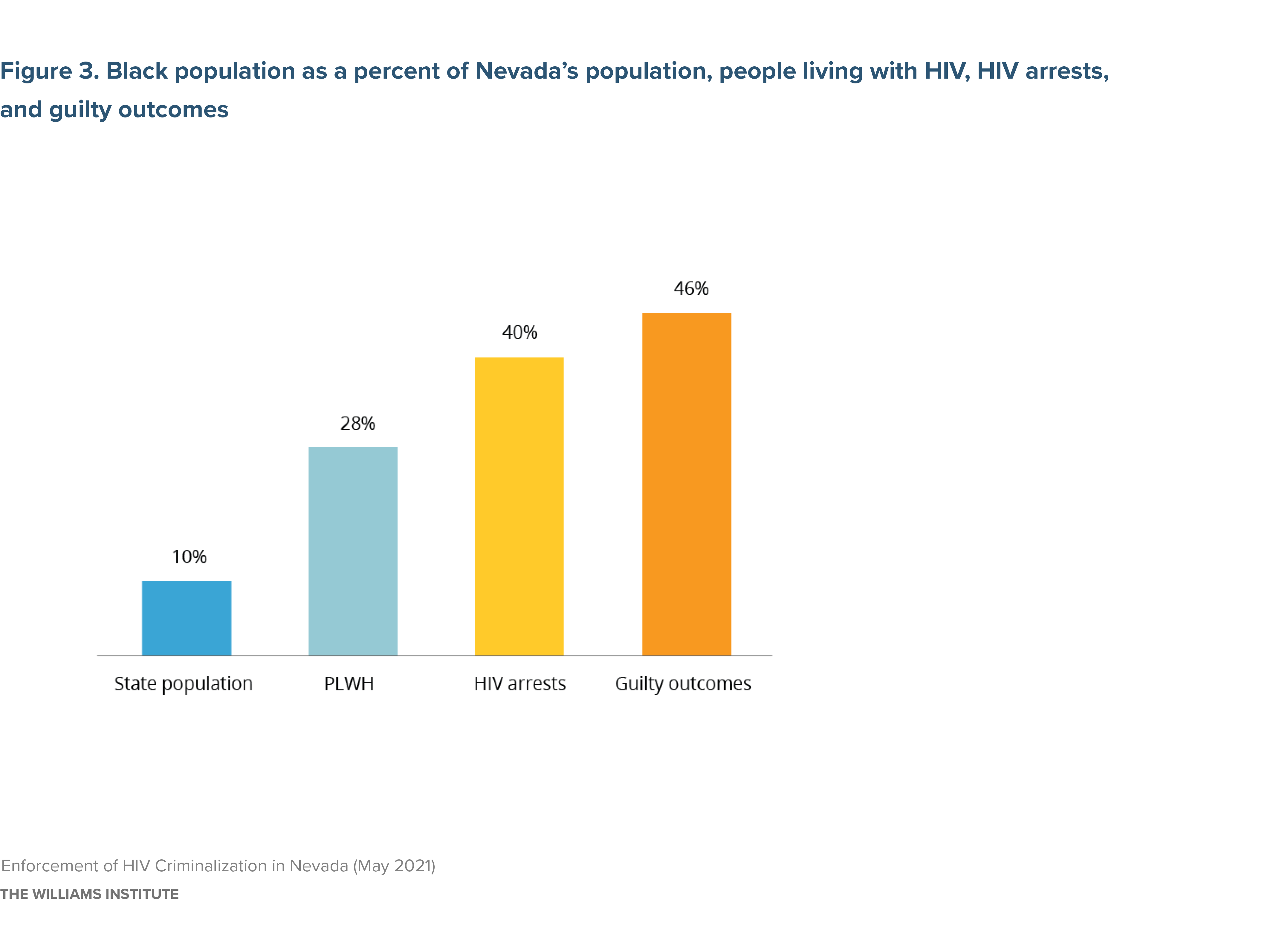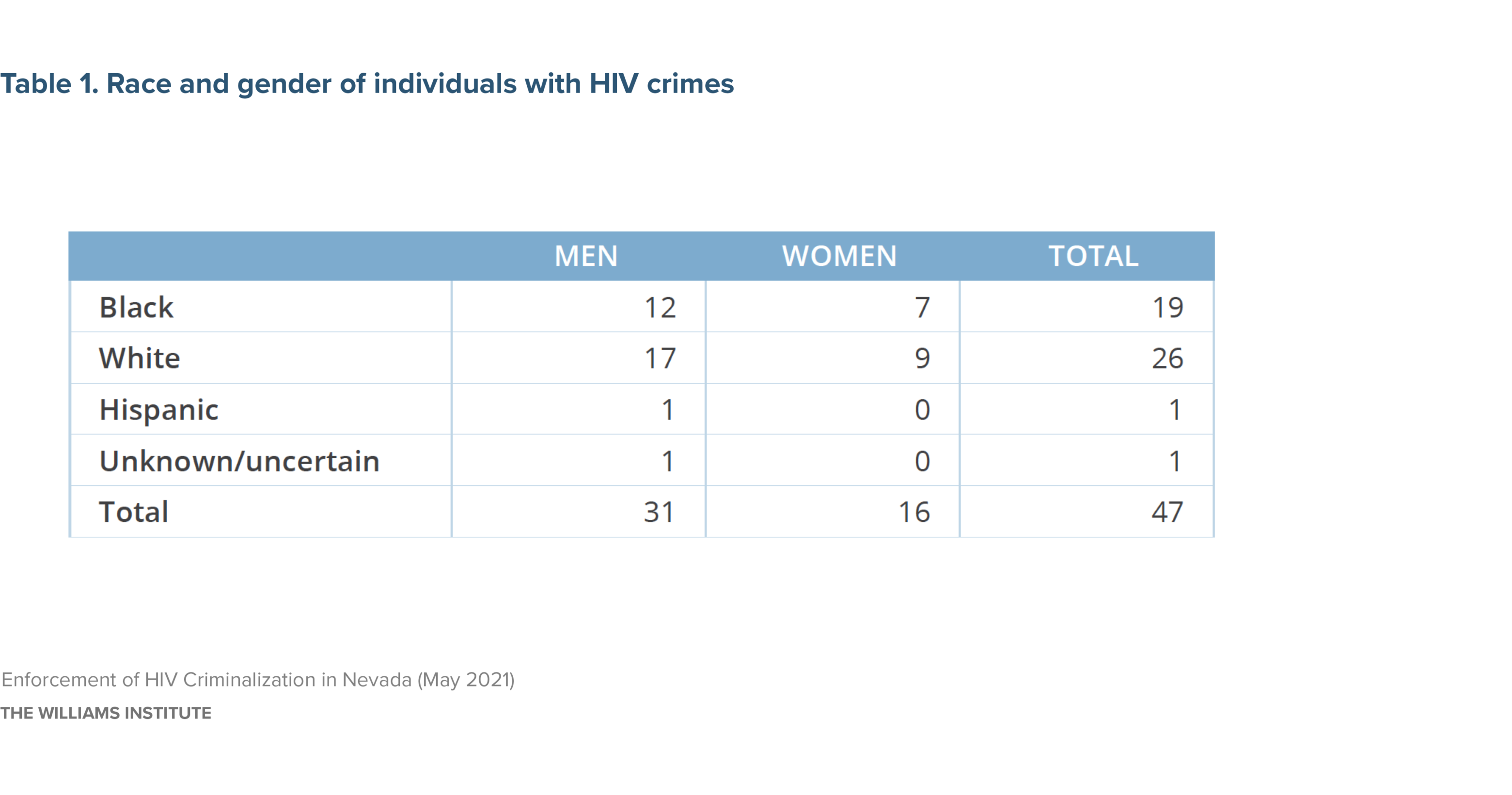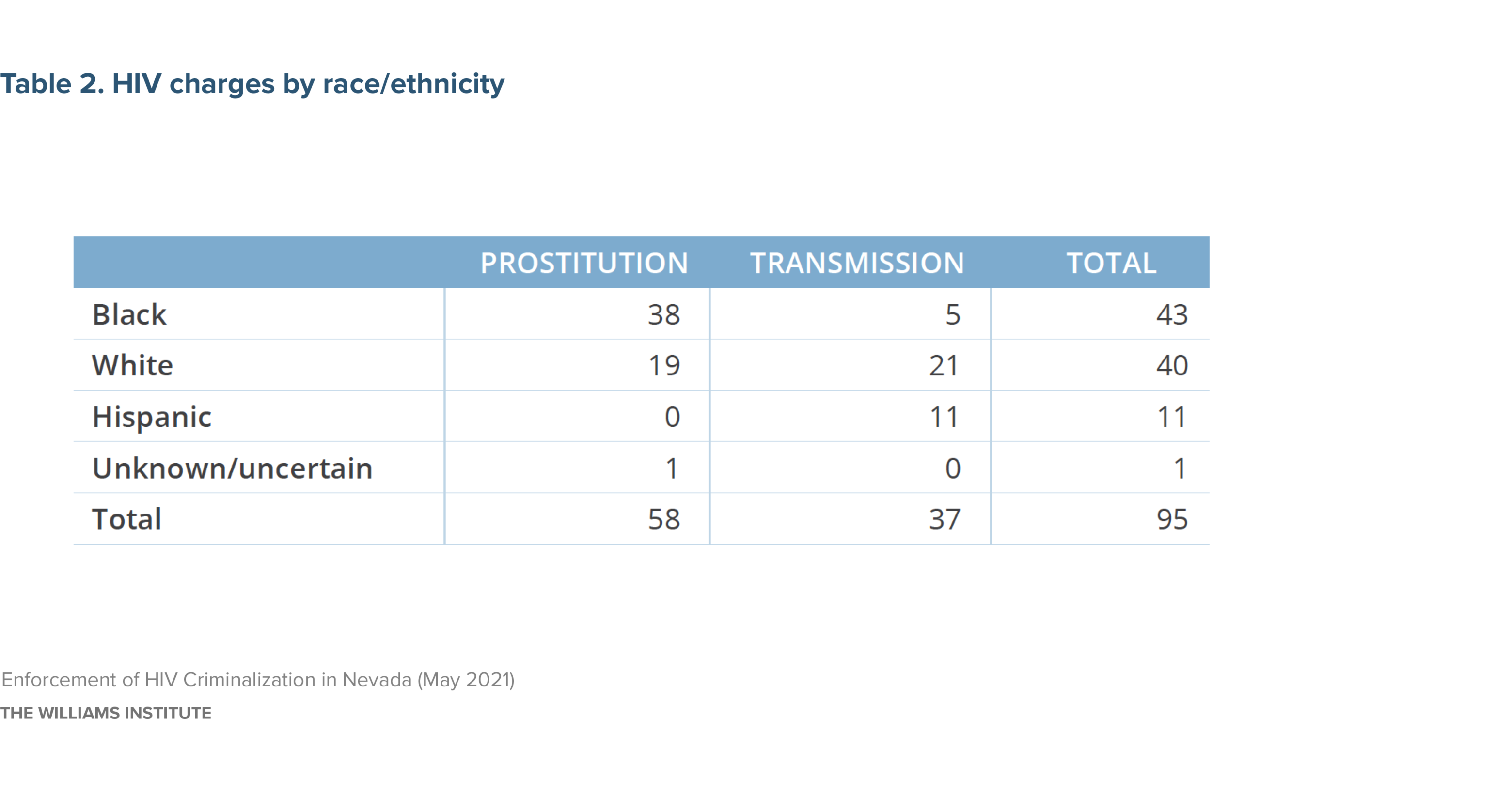Overview
The Williams Institute analyzed data from the state of Nevada about individuals who came into contact with Nevada’s criminal justice system through allegations of HIV-related crimes. The analysis shows that:
- Between 2011 and 2020, arrests for HIV crimes were double the amount from the previous decade.
- Arrests for HIV crimes fall disproportionately on Black Nevadans. Black people are 10% of Nevada’s population and 28% of people living with HIV (PLWH) in the state, but 40% of those who have been arrested for HIV crimes.
- The majority of arrests for HIV crimes involve sex work. Nevada’s HIV crimes specific to sex work account for 61% of all HIV-related charges, and 64% of all convictions.
- Almost all of the HIV convictions in Nevada do not involve any conduct that could actually transmit HIV:
- These include convictions for sex work crimes (64% of all convictions) which almost always occur without any sex having taken place.
- These also include convictions for HIV crimes for “attempting” or “conspiring” to engage in conduct that Nevada criminalizes for PLWH (36% of all convictions), including sex work.
Background
HIV criminalization is a term used to describe statutes that either criminalize otherwise legal conduct or that increase the penalties for illegal conduct based upon a person’s HIV-positive status.
Nevada has three statutes criminalizing HIV transmission. Two of the statutes criminalize activities related to sex work (passed in 1987), and the third statute (passed in 1993) criminalizes conduct that is likely or intended to transmit HIV. All three HIV crimes are felonies, carrying sentences of up to 10 years. Neither the intent to expose another to HIV nor actual transmission is a required element of any of these crimes. For example, the transmission statute only requires, “intentionally, knowingly, or willfully engag[ing] in conduct in a manner that is intended or likely to transmit the diseases to another person.” Conduct “likely to transmit” HIV is not defined by the statute.
In March 2021, the Williams Institute obtained de-identified criminal history data of individuals who came into contact with Nevada’s criminal justice system through these HIV-related criminal statutes. The data were supplied by the Nevada Department of Public Safety’s Records, Communications and Compliance Division. This fact sheet highlights key findings from our analysis of the enforcement data.
Number and Frequency of Charges
- Since 1995, 47 individuals have been charged with 95 separate HIV-related crimes by Nevada’s law enforcement agencies. Because some people have been arrested more than once or charged with more than one HIV crime, there have been 80 separate arrests involving an HIV charge.
- 58 charges (61%) were for Nevada’s HIV criminal statute related to sex work. This includes both prostitution and solicitation. 37 charges were related to Nevada’s more general HIV transmission statutes (which do not require transmission).
- Only 3% of all charges fell between 1987—when the first HIV criminalization law was enacted—and the year 2000. About one-third of all charges fell between 2001 and 2010. The remainder—64% of all charges—occurred on or after 2011. 2013 and 2015 were the peak years of enforcement.
